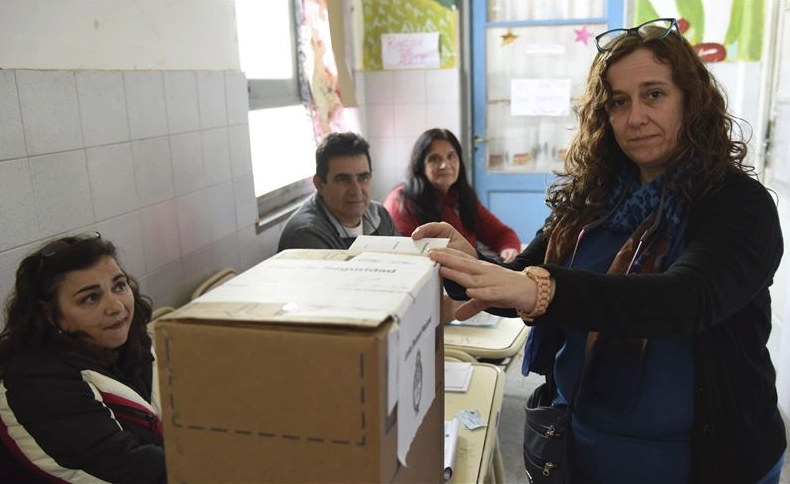Although there are various versions of the events that led to March 8 being declared International Women’s Day — or “Women’s Day”, in the plural, considering the polyphony of voices and their multiple identities —, there is certainty that these events are related to the struggles for the exercise of their rights and their participation in public spaces.
A focus on women’s political rights in Latin America shows that much ink has flowed. And important normative changes have taken place since 1927, when, in a plebiscite organized by the community of Cerro Chato, Uruguay, women voted for the first time. But it was Ecuador the first country in the region to constitutionally enshrine women’s right to vote in 1929 and Paraguay the last to do so in 1961.
As in other parts of the world, Latin American women realized that voting to elect those who would govern did not mean that the door was open for them to be elected in electoral contests. It was a vote without representation.
Contrary to what was (and still is) assumed, the low participation of women in elections was not due to lack of interest or to a “supposedly feminine nature” alien to these issues, as Rousseau pointed out in the 18th century. It was simply that those who tried to do so came up against an insurmountable wall linked to traditional gender roles.
They had to face barriers and obstacles due to the sexual division of labor and the differentiated assignment of roles between men and women, which reserved for women the tasks of care and housework, adhering them to their roles as mothers, caregivers, and judging them harshly for wanting to occupy spaces that were not considered proper to their sex/gender.
Women’s role as caregivers has persisted over time, which has had a disproportionate impact on the possibilities of developing their life projects, including participation in political spaces. According to Oxfam, in its report Time for Care. Unpaid and underpaid care work and the global inequality crisis, the economic value of unpaid care work performed by women over the age of 15 in the world is approximately 10.8 trillion dollars a year, which is three times the size of the global technology industry. This shows the importance of this issue, which today is key to feminist agendas, as was reflected in the XV Regional Conference on Women in Latin America and the Caribbean and the validity of the slogan “the personal is political”.
But undoubtedly the greatest difficulty for women who wanted to participate in political spaces came from the political parties in which men, in their dominant hegemonic positions, were unwilling to cede a power they considered their own. This difficulty persists. At present, the resistance of political parties and the obstacles that some male leaders put in the way of their female partners in militancy continue to be the main problem in increasing the presence of women in political/electoral spaces.
In the last decade of the 20th century, women saw a loophole to increase their presence in political spaces through the affirmative action mechanism called gender quotas. It was in 1991, in Argentina, that the Quota Law was adopted for the first time, which established the obligation to include 30% of women on electoral lists. In the following decades, this was the strategy followed by most of the countries in the region for the advancement of women in their political rights, except for Guatemala, which has not adopted any measure on this issue (neither quotas nor parity).
The results in Latin American countries in relation to gender quotas have been uneven. The most successful cases have occurred where proportional representation systems have accompanied these affirmative measures, closed lists, position mandates that oblige political parties to include women in winning positions, and sanctions in case of non-compliance with the law regulating quotas.
It is undeniable that quotas allowed an increase in the presence of women in the bodies of popular representation, a descriptive representation linked to a numerical criterion, but they also had an impact on symbolic representation; girls and young women now had referents and models to follow, politics was no longer considered a space forbidden to them because of their sex/gender.
However, as Nancy Fraser points out, these types of measures do not affect social agreements or the patriarchal pact on which institutions are based; they only seek to incorporate those who are excluded without changing the structures. But it is necessary to correct the framework of inequalities on which exclusion is based; parity must be sought.
In 2007, at the X Regional Conference on Women in Latin America and the Caribbean, known as the Quito Consensus because of the place where it was held, the Latin American governments that participated in this regional forum committed themselves to adopting different types of measures to guarantee the political participation and representation of women in public office at all levels, to achieve the desired parity.
To date, there are nine countries in the region with gender quota laws and nine that have enacted parity through constitutional reforms, legal reforms, or new laws that enshrine parity. Undoubtedly, more is needed. Regulatory change is important, but it is not enough.
Talking about parity goes beyond the premise that if women represent half of the world’s population, they should occupy half of the political positions. It is not simply a question of numbers. It implies a profound transformation of political, social, and institutional structures, a new social pact based on the recognition of equal conditions and opportunities for people’s rights. Parity implies that sexual, racial, and gender differences, among others, should not become inequalities for political participation and, in general, for participation in all spheres of social life.
In Latin America, in 2024, there is still a long road ahead to achieve the desired parity. Nonetheless, we women are still fighting. We continue leading, marching, demonstrating, participating, talking, agreeing, learning, and unlearning, insisting that political, public, and electoral spaces are spaces for women.
*Translated by Janaína Ruviaro da Silva from the original in Spanish.













